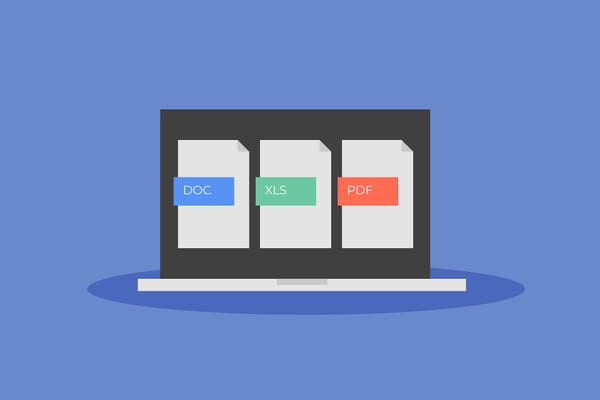Cyber Wellness for Small Business Owners: What It Is and How to Achieve It

Your mental and emotional well-being affects more than just your productivity. It also plays a role in how well you can manage and defend against cyber risks. When you're burned out, you become more vulnerable to falling for cyber threats and scams you might otherwise avoid. Imagine being in a state of prolonged fatigue and facing a ransomware attack. The emotional toll could push you to the brink of a breakdown.
Running a business comes with pressures such as long hours, financial uncertainty, and the weight of responsibility that contribute to stress, anxiety, and burnout. For some people, adding cybersecurity into the mix makes the burden even heavier.
You can prevent this by prioritizing cyber wellness, which involves finding a balance between strong cybersecurity practices and the mental wellness of you and your team. It's about staying vigilant while also enjoying peace of mind.
Did you know?
Behind the glamorous world of entrepreneurship lies a different reality: 72% of entrepreneurs report mental health concerns, 91% battle with stress, and 68% experience symptoms of burnout.
Source: Entrepreneur Burnout Statistics
Cyber-Mindfulness: The Link Between Mental Health and Cybersecurity
Entrepreneurs who heavily rely on digital tools face unique challenges. Their constant connection to technology can lead to "technostress," a modern form of stress caused by information overload, the need to continuously learn new digital tools and how to use them safely, and the lack of separation between personal and work life (for example, having video calls or checking emails after office hours). The pressure to handle both operations and cybersecurity can become overwhelming and cause cognitive fatigue, making it difficult to focus on the small details that matter most in protecting sensitive data.
When you're exhausted or stressed, you're more likely to:
- Miss red flags in phishing emails or click on malicious links.
- Prioritize urgent tasks over following best cybersecurity practices.
- Make uninformed decisions which can lead to data breaches.
Burnout doesn't just affect individuals—it seeps into your team and your business, weakening communication and collaboration. This makes it harder for your team to be on the same page and work together, leaving your business even more exposed to cyber threats.
Related: Most Common Cyber Threats on Small Businesses and How to Prevent Them (Without Hiring an IT Team).
What is Cyber Wellness?
Cyber wellness refers to your ability to engage with digital tools in a safe, responsible, and ethical manner. It's not just about protecting your data but also about fostering a healthy digital environment that supports both security and mental well-being.
For very small businesses, cyber wellness involves:
- Encouraging safe online behavior and best practices.
- Educating your team on digital privacy and security.
- Balancing technology use to prevent burnout or tech/ information overload.
5 Steps to Increase Cyber Wellness in Your Small Business
Here are areas you should consider and five practical ways to do it.
- Be Aware of the Connection Between Mental Health and Cybersecurity
Burnout and stress can lead to poor decision-making and neglect of cybersecurity best practices. For example, when you're tired, you might not notice warning signs on a suspicious email, or you could accidentally approve an invoice from a scammer.
Tip: Don't make important decisions when you're exhausted. Set aside time for key tasks like reviewing invoices when you're well-rested and alert.
Related: Why do small business owners fall for scams (link to be added)
2. Clarify Roles and Responsibilities
Role ambiguity can lead to stress and confusion. Make sure your team knows who is responsible for what, especially as your business grows.
Example: Who handles updating software and backups? Who manages passwords and has access to your systems? Do your employees know how to report a threat? Do you or they know what to do in case of an attack or breach?
3. Promote Safe Flexibility in the Workplace
Offering flexibility, like hybrid or remote work options, can reduce stress and improve job satisfaction. However, flexibility needs to be secure. Remote work can expose your business to cyber risks if proper safeguards aren't in place.
Tip: Ensure your team uses secure VPN connections and is trained on safe remote working practices.
Related: How Remote Employees Can Cause a Data Breach of Your Small Business Data (And How to Prevent It)
4. Incorporate Cyber Wellness into Your Company Culture
Cyber wellness needs to be more than a one-time effort. Make regular conversations about mental health and cybersecurity a norm. Encourage employees to report potential threats without fear of judgment and provide support when they need help balancing workload and security.
Tip: Talk openly about personal and business well-being, and consider offering mental health resources. When everyone feels supported, they'll be more engaged and better equipped to protect your business.
5. Use Technology to Support Your Digital Wellness
Since running a business completely offline isn't realistic, use technology wisely to maintain digital wellness. For example, choose digital wellness tools to manage stress, practice mindfulness, and stay focused throughout the day.
When it comes to cybersecurity, delegate those tasks to specialized technology built to combat cyber threats. Sometimes, small business owners try to do it all, which leads to overwhelm. The truth is, you don't have to handle cybersecurity on your own.
Tip: Invest in cybersecurity solutions tailored for small businesses to handle your security needs, reduce stress, and let your team focus on what they do best.
Key features and benefits of Bitdefender Ultimate Small Business Security include:
● Powerful threat protection for the entire team - Each employee device is fully secured, along with company servers storing customer and other sensitive information. Additionally, online activities like email, web browsing, and social media use are shielded, and webmail accounts (Outlook and Gmail) are protected. It’s seamless coverage in the office or at home.
● Advanced Scam and Fraud Prevention - AI-powered protection trained around small business-specific scams keeps a watchful eye, proactively detecting and blocking phishing attempts, scams, malicious websites, and other shady online tactics before they reach your team.
● Centralized Management Made Simple—Manage security effortlessly across the entire workforce from a single place through an intuitive dashboard. The user-friendly controls make it easy for anyone to configure precisely what’s needed to monitor and manage.
● A solution that businesses can trust- Consistently reaching the top positions in industry tests for protection and performance. Check out plans, here: https://www.bitdefender.com/small-business/
tags
Author
Cristina is a freelance writer and a mother of two living in Denmark. Her 15 years experience in communication includes developing content for tv, online, mobile apps, and a chatbot.
View all postsRight now Top posts
How to Protect Your WhatsApp from Hackers and Scammers – 8 Key Settings and Best Practices
April 03, 2025
Outpacing Cyberthreats: Bitdefender Together with Scuderia Ferrari HP in 2025
March 12, 2025
Streamjacking Scams On YouTube Leverage CS2 Pro Player Championships to Defraud Gamers
February 20, 2025
How to Identify and Protect Yourself from Gaming Laptop Scams
February 11, 2025
FOLLOW US ON SOCIAL MEDIA
You might also like
Bookmarks







